Home
Sergei Skripal, aged 66, and his daughter Yulia were found in a state of collapse on a bench outside a shopping centre in Salisbury. Mr Skripal, a retired Russian military intelligence officer, was jailed by Russia in 2006 on charges of giving secrets to MI6; he was deported in a swap of spies in 2010. Boris Johnson, the Foreign Secretary, said that the incident had ‘echoes of the death of Alexander Litvinenko’. Public Health England threatened food manufacturers and supermarkets with new laws unless they reduced the calories in portions of crisps, pizzas and pies.
In a speech on Brexit at Mansion House (intended, before the snow came, to have been made in Newcastle), Theresa May, the Prime Minister, sought to conciliate members of the government by speaking of compromise and to cheer up European Union negotiators by acknowledging such things as a role for the European Court of Justice in regulating bodies like the European Medicines Agency (which has already decided to move from London to Amsterdam). She repeated that Britain was leaving the single market and the customs union, but said: ‘We may choose to commit some areas of our regulations like state aid and competition to remaining in step with the EU’s.’ On Northern Ireland, she said there would be no hard border with the Republic, and no customs border with the rest of the United Kingdom. She proposed five tests for an agreement with the EU, though it was unclear how they could be applied; one of them was ‘bringing our country together’.
In response to the speech, Jacob Rees-Mogg, a leading Brexiteer, said; ‘Now is not the time to nitpick.’ Sarah Wollaston, an MP leaning towards the Remain position, said that a rebel amendment to the Trade Bill, on a customs union, would ‘probably be kicked down the road’. EU responses were cool. Guy Verhofstadt, the Brexit spokesman of the European Parliament, called the speech vague ‘aspirations’, and came to London for talks with David Davis, the Brexit Secretary, before a vote by the European Parliament in Strasbourg next week. Five days after the speech, when Philip Hammond, the Chancellor of the Exchequer, was due to give his view of Brexit, Donald Tusk, the president of the European Council, presented draft guidelines on what the EU would like to see in a trade agreement with Britain after Brexit. Sir Roger Bannister, the first man to run a mile in less than four minutes, died aged 88. Trevor Baylis, the inventor of the clockwork radio, died aged 80. Cumbrian villagers, cut off by snow for six days, burnt furniture to keep warm. Thousands further south were without water after a thaw exposed burst pipes.
Abroad
The populist, anti-eurozone Five Star Movement became Italy’s biggest party, with 32.6 per cent of the vote in the general election. It dominated in the south, while the right-wing coalition, with 37 per cent nationally, dominated in the north, apart from the redoubts of Tuscany and the Trentino which favoured the left-wing coalition of Matteo Renzi, who resigned as the leader of the centre-left Democratic Party. Lego’s pre-tax profits fell by 18 per cent in 2017. France decided to make 15 the legal age of sexual consent, which had not been fixed before.
President Donald Trump of the United States said he wanted steel imports to bear a 25 per cent tariff and aluminium 10 per cent; later he issued a threat against cars made in the EU. Gary Cohn, a leading economic adviser to the President, resigned. Gary Oldman won the Oscar for best actor for his role as Churchill in Darkest Hour; Frances McDormand was best actress for her part in Three Billboards Outside Ebbing, Missouri; the best picture was reckoned to be The Shape of Water, directed by Guillermo del Toro.
Kim Jong-un, the ruler of North Korea, agreed to meet President Moon Jae‑in of South Korea at a summit in April at Panmunjom on the border. Some 90 people were reported to have been killed by Syrian government forces in one day in eastern Ghouta, near Damascus. A Russian transport plane crashed on landing at the Hmeimim air base near Latakia, killing all 32 on board. At least 36 pro-Syrian government troops were reported to have been killed by a Turkish air strike in the region of Afrin, where they had been supporting Kurdish forces. South Africa blamed an outbreak of listeria that killed 180 people on contaminated polony. CSH
Got something to add? Join the discussion and comment below.
Get 10 issues for just $10
Subscribe to The Spectator Australia today for the next 10 magazine issues, plus full online access, for just $10.
You might disagree with half of it, but you’ll enjoy reading all of it. Try your first month for free, then just $2 a week for the remainder of your first year.

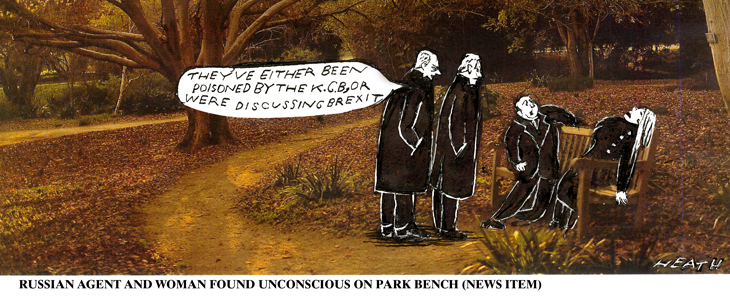

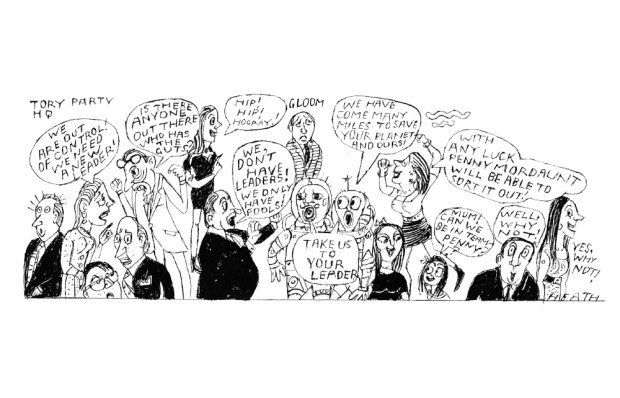

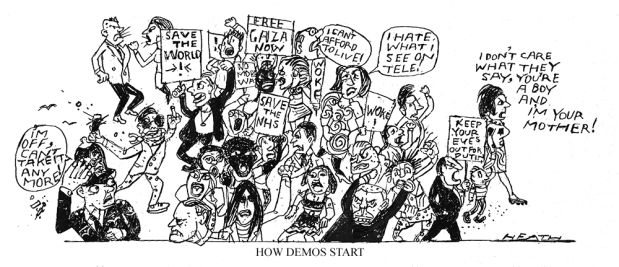
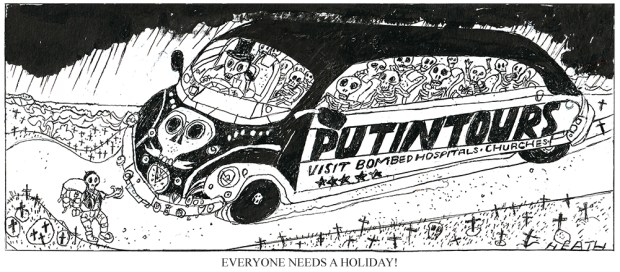
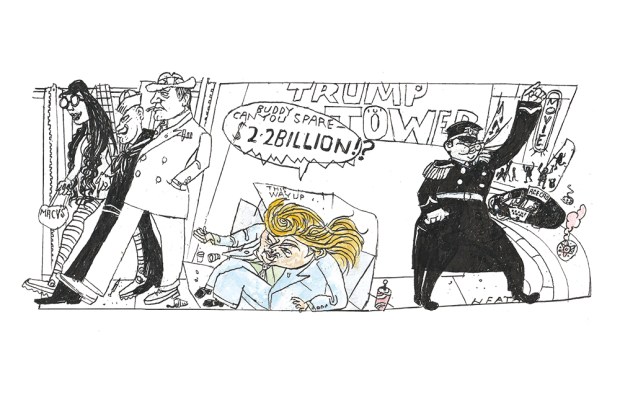






Comments
Don't miss out
Join the conversation with other Spectator Australia readers. Subscribe to leave a comment.
SUBSCRIBEAlready a subscriber? Log in